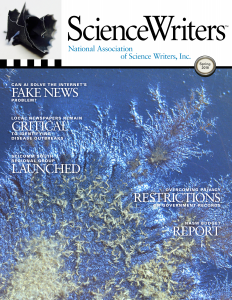By Julian Block
Just before Santa arrived in 2017, President Trump signed Public Law No. 115-97, aka the Tax Cuts and Jobs Act. Both supporters and opponents of the legislation have described it as the most comprehensive overhaul of the Internal Revenue Code since the Tax Reform Act of 1986.
As the measure made its way through Congress, media coverage focused mainly on the creation of lower tax brackets. Receiving scant coverage were significant changes to the deductions for fees paid for preparation of returns and advice on tax planning. In my view, the new rules unfairly target taxpayers compelled to get such help.
Dazed and confused
Every year, filers not only need help filling out Form 1040, they frequently need guidance on how to respond to IRS computer-generated assessments of penalties for not submitting returns and payments by their due dates and for interest charges on overdue payments.
Dial up the IRS and its understaffed, underfunded, and slow-to-respond employees will insist that taxpayers respond promptly to these notices, written in indecipherable bureaucratese, or become liable for additional penalties and interest. What's a taxpayer to do? Many pay for professional help available from accountants, lawyers, enrolled agents, financial planners, and others (not all of whom, in my experience, are equally talented).Beginning with 2018 tax returns (filed in 2019), revised regulations prevent itemizers who use Form 1040's Schedule A from deducting fees for preparation of returns or for advice on strategies that allow them to trim taxes and sidestep pitfalls.
That's bad news for taxpayers who need advice on, among other things: negotiation of book contracts with print and electronic publishers; how to enter into or unwind a marriage; when and how much to withdraw from individual retirement accounts and other kinds of tax-deferred retirement plans, and whom to designate as beneficiaries of those accounts; appraisals to determine how much can be claimed for charitable contributions of artwork and other kinds of property; and settlements of claims involving sexual harassment or other kinds of misbehavior.
All is not lost
There is a rose amidst these tax thorns. The new law left unchanged old rules that authorize fee splitting for that portion of tax preparation and planning fees that are allocable to Schedule C (profit or loss from business), Schedule E (income from renting vacation homes or other properties, royalties, partnerships, and S corporations), or Schedule F (profit or loss from farming).
Taxpayers can, therefore, continue to use such fees on Schedules C, E, or F to offset business, rental, or farming income. They're similarly allowed to claim fees for fighting audits of Schedule C, E, or F activities.
An example: Sunny von Earhart is a self-employed writer who receives significant amounts of book royalties and payments for magazine articles. She pays $1,500 in 2019 for preparation of her 2018 return. Sunny's preparer mentions that her invoice will attribute $900 of the fee to completion of Schedule C.
Sunny responds that they're navigating terra incognita. Is the IRS willing to accept a paid preparers' allocation? Yes, provided it's reasonable, as opposed to front-loaded.
Fast forward to 2020: Sunny files for 2019 and falls into a 30 percent federal and state bracket. While she can't claim any deduction on 2019's Schedule C for $600 of the previous year's $1,500 total tax-preparation fee, she can claim $900 of it, reducing her federal and state levies by $270.
Another positive outcome of this strategy: The $900 deduction on Sunny's Schedule C reduces the amount she shows as net profit (thereby decreasing the amount of income subject to income taxes) and it decreases the amount of her business income subject to self-employment taxes (otherwise known as Social Security taxes for the self-employed).
Worth knowing and pursuing because Sunny, like many other freelancers, shells out more for self-employment taxes than for income taxes.
Julian Block is an attorney and author based in Larchmont, N.Y. He has been cited as: "a leading tax professional" (New York Times); "an accomplished writer on taxes" (Wall Street Journal); and "an authority on tax planning" (Financial Planning Magazine). _Information about his books is at Julianblocktaxexpert.com.
(NASW members can read the rest of the Spring 2018 ScienceWriters by logging into the members area.) Free sample issue. How to join NASW.




